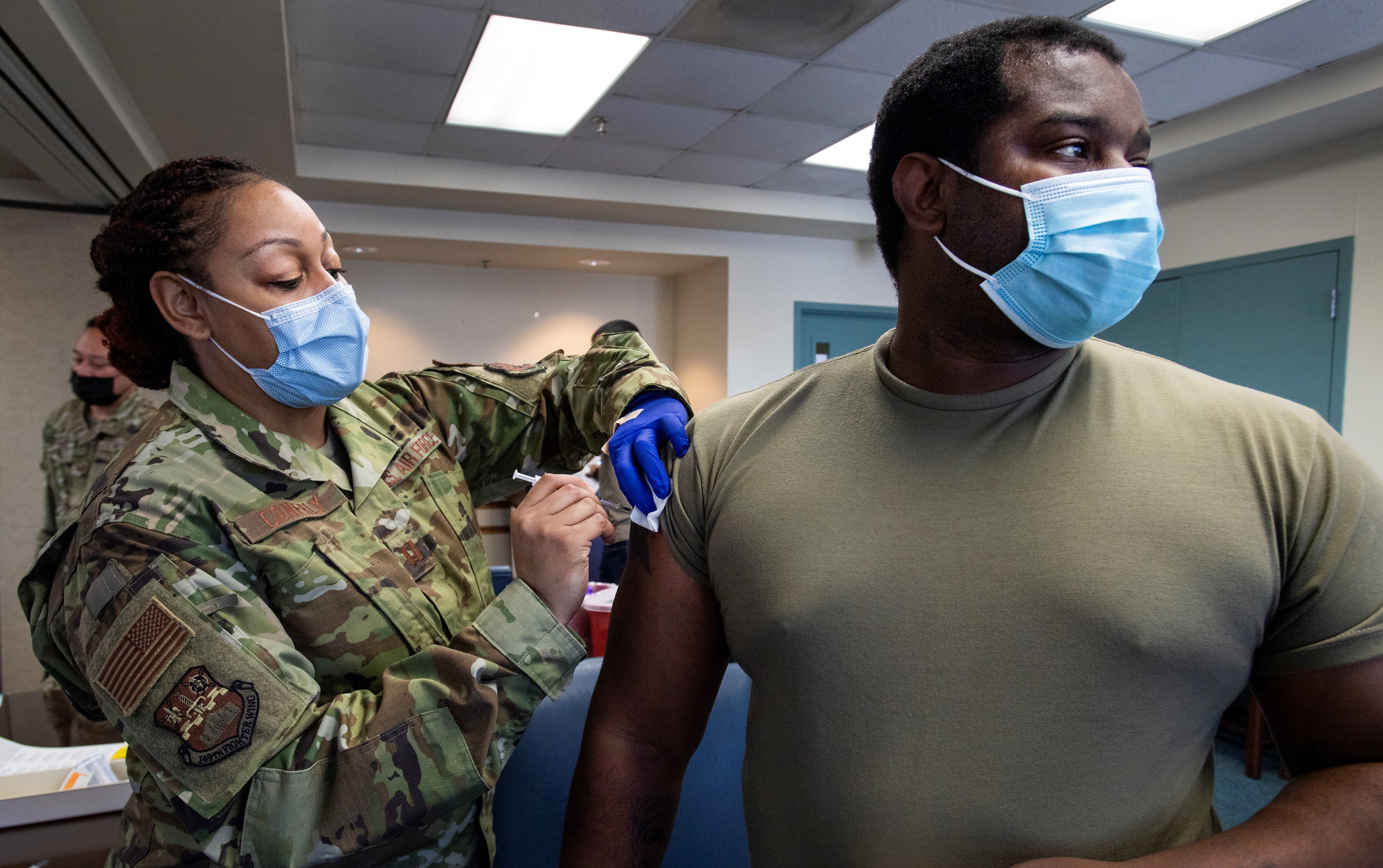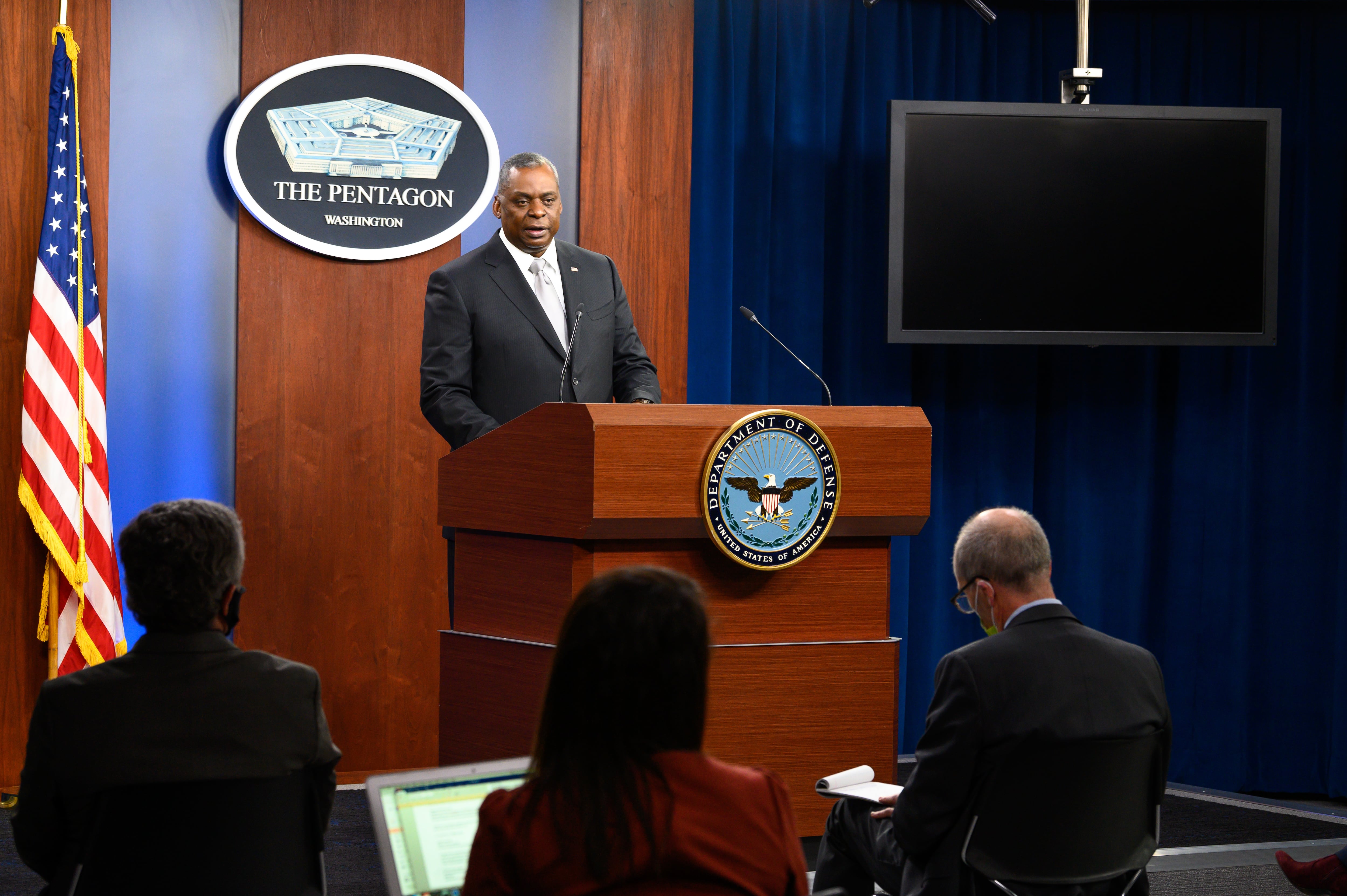Lawmakers want Pentagon leaders to launch a full review of military basic pay to see if troops’ salaries are high enough to keep up with the needs of military families, and whether the current pay tables need to be overhauled.
The idea is included as part of the compromise defense authorization bill unveiled by House and Senate leaders Tuesday night. The sweeping military budget policy legislation includes plans for $817 billion in Defense Department spending for fiscal 2023 and a 4.6% pay raise for troops in January, the largest in 20 years.
But while the pay raise will put more money in all troops’ wallets in coming months, the pay review could lead to dramatic changes in what service members earn in coming years.
Lawmakers have been focused on the idea of military pay over the last year as inflation costs have risen and recruiting efforts have lagged. Defense Department leaders have lamented that their ability to bring in and retain individuals with in-demand skills has been hampered by the inflexibility of military personnel rules.
RELATED

The new pay study — to be conducted by an outside research group — is designed to provide answers to some of those problems.
The authorization bill calls for researchers to look into “whether to update the current [military pay] model to meet the needs of the 2023 employment market” and “an assessment of whether to modify current basic pay tables to consider higher rates of pay for specialties … in critical need of personnel.”
Military basic pay is currently based wholly on an individual’s rank and time in service. Military leaders have emphasized that it is only one part of a range of compensation for troops, including housing stipends, health care coverage and future veterans benefits.
A junior enlisted service member with two years service makes about $22,000 a year in base pay, regardless of their job responsibilities. An officer with 10 years in service makes about $95,000.
Troops can earn extra money through recruitment bonuses and specialty pay for certain jobs. But Pentagon leaders have long debated whether those kinds of incentives should be included as part of a new base pay standard for certain skills, rather than income add-ons.
In addition, pay is set so that military personnel earn more than 70% of civilians with similar backgrounds and education. That number has fluctuated over the years as annual pay raises have exceeded or fallen short of civilian raises.
The congressionally mandated study will also look into whether that 70% mark is still adequate for recruiting and retention purposes, and whether the Employment Cost Index (a measure of growth in private-sector wages) should still serve as the basis for military pay calculations.
House lawmakers are expected to pass the authorization bill into law this week, with Senate action anticipated next week. If the pay study language remains part of the final law, an interim report on the compensation issues would be due to the House and Senate Armed Services committees by April 1, 2023.
That would put the findings in the hands of lawmakers as they are crafting the fiscal 2024 authorization bill, a potential vehicle for those pay reforms.
RELATED

House Armed Services Committee ranking member (and expected incoming chairman of the panel) Mike Rogers, R-Ala., and several other top committee leaders have already expressed an interest in adjusting military pay, both to better respond to rising inflation costs and to better compensate enlisted personnel. The interim report could be key in justifying those moves.
Additional findings on the pay issues would also be reported to Congress one year and two years after the start of the research project.
Regardless of the authorization bill’s fate, the 4.6% pay raise is scheduled to go into effect at the start of next month.
For junior enlisted troops, a 4.6% hike over 2023 salary levels would mean about $1,300 more next year in take-home pay. For senior enlisted and junior officers, the hike equals about $2,500 more. For an O-4 with 12 years’ service, it’s more than $4,500 in extra pay.
Leo covers Congress, Veterans Affairs and the White House for Military Times. He has covered Washington, D.C. since 2004, focusing on military personnel and veterans policies. His work has earned numerous honors, including a 2009 Polk award, a 2010 National Headliner Award, the IAVA Leadership in Journalism award and the VFW News Media award.





